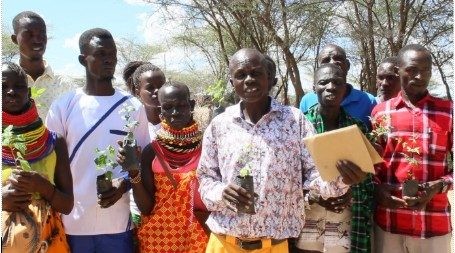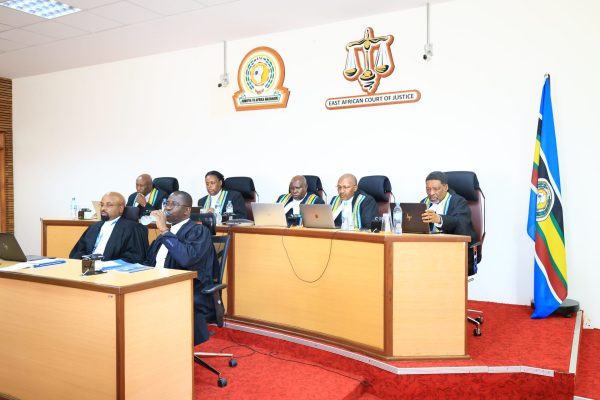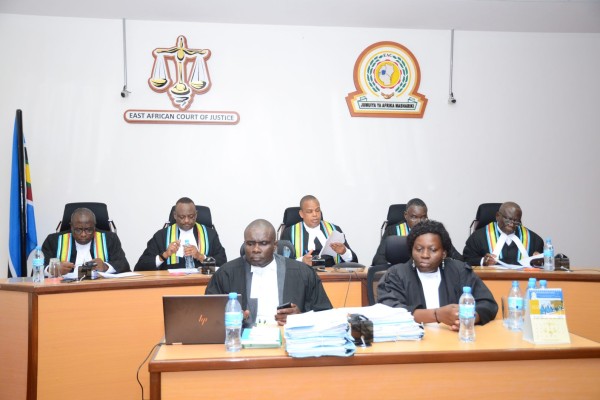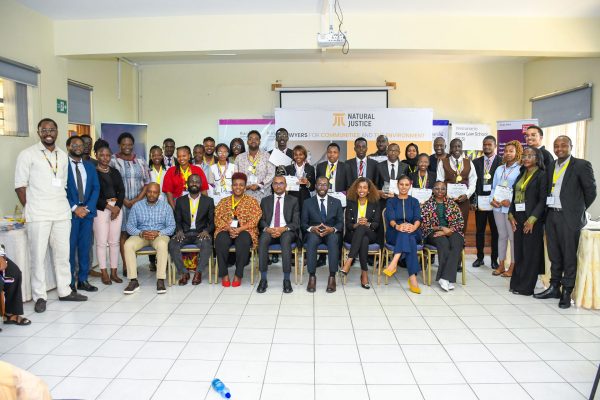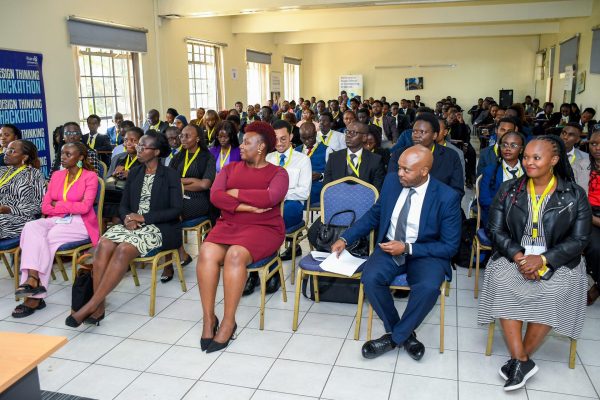Nairobi, 12 October 2023 — In a groundbreaking ruling in Kenya by the Environmental and Physical Planning Division of the Environmental and Lands Courts, Justice O. Angote ruled that the lifting of the moratorium of logging instated by the Kenyan government in 2018 must not go ahead.
Justice Angote ruled that the logging moratorium must be reinstated until such time as the government complies with the orders issued-3 months from the date of judgment.
ELC Petition No. E001 of 2023 was brought forward by the Law Society of Kenya against the Attorney General, the Cabinet Secretary of the Ministry of Environment, the Kenya Forest Service, and other relevant parties. The Petition challenged the directive on the lift of the logging moratorium. Natural Justice supported the Petition as the 2nd Interested Party.
Natural Justice joined the petition with the intention of challenging the lifting of the moratorium in the absence of the 2018 task force recommendations being implemented. The moratorium was imposed in 2018 when the country was witnessing rampant forest destruction by illegal loggers, and the Kenya Forest Service was incapable of providing assistance due to widespread corruption within its ranks.
The government imposed the logging ban during this period for these very reasons.
The court ruled that the lifting of the moratorium lacked public participation and was therefore null and void.
This has affirmed the fundamental role of public participation in the making of laws, regulations, and guidelines governing logging activities. The court further ruled that any logging should be done in accordance with the law, following due process. It affirms the need to have robust and effective laws, policies and plans to govern logging activities.
The judgment
Key outcomes of the judgment include:
- A declaration was issued that the Law Society of Kenya and the members of the Public are entitled to participate in the making of laws, regulations and guidelines to govern logging activities.
- A declaration was issued that the lifting of the moratorium on logging activities was by consent of parties in Nyeri and Meru High Court which lacked public participation and therefore unconstitutional, null and void.
- A declaration was issued that the recommendations made by the taskforce report on forest resources management resources and activities in Kenya ought to be upheld by the Respondents and implemented in furtherance to the protection of the environment and natural resources pursuant to Article 69 of the Constitution of Kenya 2010.
- An Order was issued, compelling the government to implement the Task Force’s Recommendations and a comprehensive implementation matrix of the same to be filed in Court not later than three months after the date of the Judgment.
- An order that the implementation framework shall include a program for proactive dissemination of information and public participation in the management of forest resources including but not limited to the Kenya Forest Service’s strategic plan, forest management plan and felling plan.
- An order that the 5000 hectares of the mature and over mature forest plantation trees identified by the multi-agency oversight team to be harvested under the supervision of the Kenya Forest Service and the multi-agency team.
- An order that the harvesting of the 5000 hectares of the mature and over mature forest plantation trees to be done in strict compliance with the provisions of the law including the environment and management Act, the Forest Conservation Management Act, the Forest (participation in sustainable forest management) rules 2009, Forest Management rules and the Forest harvesting rules.
- Save for the 5000 hectares of mature and over mature forest plantation trees, the Court issued conservatory orders restraining the Respondents either by themselves or through the agents, servants, employees, proxies or any other person from licensing, permitting, allowing or in any other way exploiting forest resources until the interim judgement of the Court is implemented.
The implication of this decision is that the logging moratorium is reinstated pending the government’s compliance with the above orders. Consequently, the only logging permitted is for the 5,000h a of mature trees which is to be done under the strict supervision of KFS. This will protect the forests from destruction.
“This judgment has reinforced the right of the Kenyan citizens to a clean and healthy environment and the need to ensure that effective and meaningful public participation is conducted in environmental decision-making process. The judgement reinforces the need to have robust legal frameworks, policies and plans to ensure that directives such as in this case, lifting of the moratorium on logging, are done in a manner that respects the rights of the Kenyan citizens.”- Anne Njoroge – Advocate of the High Court of Kenya, Natural Justice.
“The court’s judgment on the logging ban stands as a resounding testament to the fundamental role of public participation in environmental governance. By employing the remedy of a structural interdict, the court will vigilantly oversee the enforcement of its orders, compelling the respondents to adhere to their legal obligations. There is no more fitting decision than to issue such an order, reflecting the court’s commitment to both justice and environmental stewardship.” – Dale Onyango- Advocate of the High Court of Kenya, Natural Justice.
This landmark judgment sets a significant precedent for cases involving the protection of the environment and human rights in Kenya and the wider East African region. This is a crucial step towards ensuring transparency and accountability in logging activities and protecting the environment for future generations.
Ends



